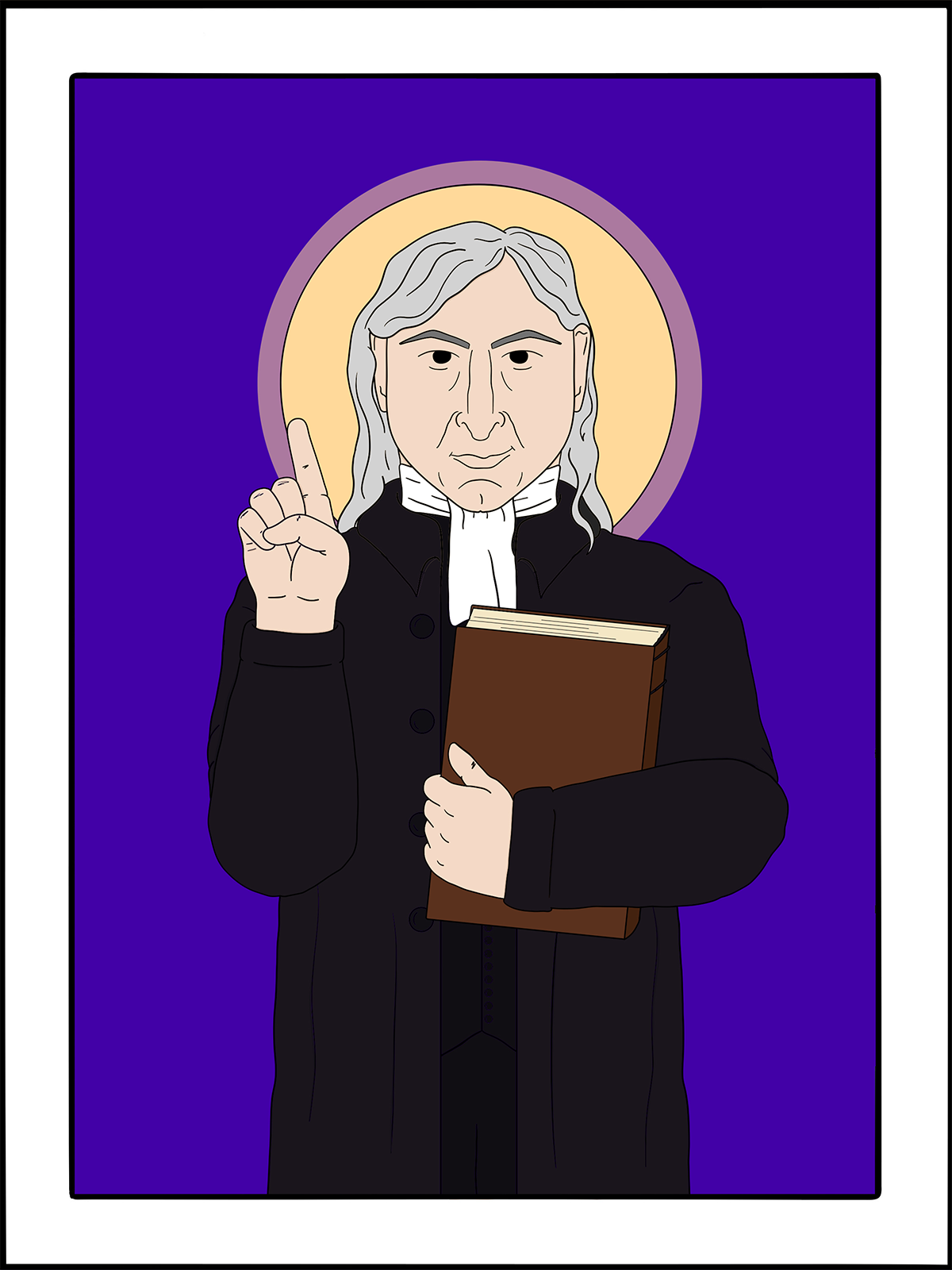
April 10
William Law
Priest, 1761
art by Rev. Kirsten Kohr of Geneva, Ohio Almighty God, whose servant William Law taught us to hear and follow your call to a devout and holy life: Grant that we, loving you above all things and in all things, may seek your purpose and shape our actions to your will, that we may grow in all virtue and be diligent in prayer all the days of our lives, through Jesus Christ our Lord, to whom with you and the Holy Spirit be all honor and glory now and for ever. Amen.
“If we are to follow Christ, it must be in our common way of spending every day. If we are to live unto God at any time or in any place, we are to live unto him in all times and in all places. If we are to use anything as the gift of God, we are to use everything as his gift.” So wrote William Law in 1728 in A Serious Call to a Devout and Holy Life.
This quiet schoolmaster of Putney, England, could hardly be considered a revolutionary, and yet his book had near-revolutionary repercussions. His challenge to take Christian living very seriously received a more enthusiastic response than he could ever have imagined, especially in the lives of Henry Venn, George Whitefield, and John Wesley, all of whom he strongly influenced. More than any other man, William Law laid the foundation for the religious revival of the eighteenth century, the Evangelical Movement in England, and the Great Awakening in America.
Law came to typify the devout priest in the eyes of many. His life was characterized by simplicity, devotion, and works of charity. Because he was a Non-Juror, who refused to swear allegiance to the House of Hanover, he was deprived of the usual means of making a living as a clergyman in the Church of England. He therefore worked as a tutor to the father of the historian Edward Gibbon from 1727 to 1737.
Law also organized schools and homes for the poor. He stoutly defended the sacraments and scriptures against attacks by the Deists, and he spoke out eloquently against the warfare of his day. His richly inspired sermons and writings have gained him a permanent place in Christian literature.
Law died at Kings Cliffe on April 9, 1761.
Excerpted directly from “Lesser Feasts and Fasts 2022,” p. 184-185.

